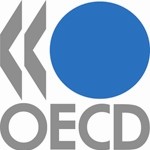 On June 29, the OECD released a Communiqué on Principles for Internet Policy-Making outlining principles meant to guide nations’ policies on the internet, aimed at “ensuring that the Internet remains open and dynamic.” The communiqué emerged out of a “High Level Meeting on the Internet Economy” at which the principles were agreed to by country government representatives from OECD countries and Egypt, as well as stakeholders such as “the Business and Industry Advisory Committee to the OECD and the Internet Technical Community.”
On June 29, the OECD released a Communiqué on Principles for Internet Policy-Making outlining principles meant to guide nations’ policies on the internet, aimed at “ensuring that the Internet remains open and dynamic.” The communiqué emerged out of a “High Level Meeting on the Internet Economy” at which the principles were agreed to by country government representatives from OECD countries and Egypt, as well as stakeholders such as “the Business and Industry Advisory Committee to the OECD and the Internet Technical Community.”
The Communiqué contains a number of pledges to maintain and internet, as well as pledges related to IP enforcement, some of which promote private-sector IP enforcement:
- “Sound Internet policy should encompass norms of responsibility that enable private sector voluntary co-operation for the protection of intellectual property. Appropriate measures include lawful steps to address and deter infringement, and accord full respect to user and stakeholder rights and fair process. In keeping with the multi-stakeholder processes set out in this document, all parties have a role to play, including individuals, providers, intermediaries, and judicial authorities.”
- “Governments may choose to convene stakeholders in a transparent, multi-stakeholder process to identify the appropriate circumstances under which Internet intermediaries could take steps to educate users, assist rights holders in enforcing their rights or reduce illegal content, while minimising burdens on intermediaries and ensuring legal certainty for them, respecting fair process, and more generally employing the principles identified in this document. In achieving these current objectives the social and economic costs and benefits, including impacts on Internet access, use, security and development of the policy options should be assessed as part of their development process as should also be their compatibility with the protection of all relevant fundamental rights and freedoms and their proportionality in view of the seriousness of the concerns at stake.”
Civil society groups have responded with statements that are supportive of the overall goals of the OECD high level meeting – maintaining an open and dynamic internet, but critical of the IP enforcement lanugauge within the communiqué.
- “CSISAC members were concerned about the text’s over-emphasis on protection and enforcement of intellectual property rights, even at the expense of fundamental freedoms, and without adequate discussion of the other factors that have allowed the Internet to flourish and innovation to take place to date.”
- “CSISAC members were particularly troubled by text in the Communiqué relating to the roles and responsibilities of Internet intermediaries… CSISAC felt that Internet intermediaries must not be called upon to make determinations about the legality of content passing through their networks and platforms because they are neither competent nor appropriate parties to do so. Requiring them to make determinations on the legality of content or behaviour of users raises issues for transparency, due process and accountability and detrimentally impacts on citizens’ freedom of expression. The role of intermediaries as ‘mere conduits’, and accompanying liability limitations found in many OECD countries, is integral to the protection of civil liberties online. As all online activity requires intermediation, conduits have potential to exert extreme control and surveillance on online conduct. For this reason, no text should undermine, or condition, existing limitations of liability for such entities upon the satisfaction of positive obligations to take particular actions, such as “lawful steps”. Nor should intermediaries be required to “assist rights holders in …reduc[ing] illegal content.”
Joint Statement by Consumers Union and the Consumer Federation of America:
- “CFA and CU support the decision, however, by the Civil Society Information Society Advisory Council (CSISAC) to the OECD Committee on Information, Computer and Communications Policy not to endorse the communiqué because of concerns that it may encourage or allow governments to use Internet intermediaries to police online content. Although we recognize the importance of protecting intellectual property online, Internet intermediaries are neither competent, nor the appropriate entities to determine the legality of the content passing through their networks, and should not be charged with blocking or filtering potentially “unlawful” online activity. We fear that such a principle would undermine access and freedom of expression, the very goals that this document seeks to promote.”
La Quadrature du Net statement:
- “Although the text puts forward positive recommendations, rights and freedoms online are severely undermined by the call for private policing of the network, opening the door to automated censorship in the name of copyright.”




